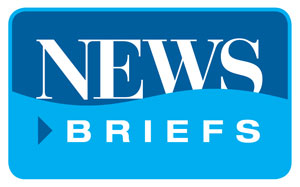Two recent back-to-back sanitary sewer overflows in Durham, North Carolina, were caused by vandalism, authorities say. About 24,000 gallons of wastewater overflowed into local tributaries as result of the two backups.
Crews who responded to the overflow events found appliance parts and other items inside two manholes. They worked to clear the manholes while Little Lick Creek — the downstream tributary — was dammed and flushed, as untreated wastewater was pumped back into the sanitary sewer system.
Is There a Better Way to Celebrate Mardi Gras?
As the city of New Orleans wraps up its 2020 Mardi Gras season, a high-profile article on The Atlantic asks whether the city should celebrate more sustainably to protect its vital sewer system from plastic beads and trash. After all, much of the coastal city sits below sea level and relies on pumps and pipes to keep it dry.
The article sums up the issue pretty well in this one sentence: “In 2018, 46 tons of toxic Mardi Gras beads were extracted from the drainage system that’s supposed to keep our streets from filling up like the canals of Venice.”
The story begins with a manhole explosion — the cry of a sewer system in great distress — and ends with a call to action to save one of America’s most culturally rich cities.
EPA Announces $40 Million WIFIA Loan for Kissimmee, Florida
As part of the U.S. Environmental Protection Agency’s 50th anniversary celebration, the agency announced a $40 million Water Infrastructure Finance and Innovation Act (WIFIA) loan to the Toho Water Authority in Kissimmee, Florida.
The loan will help finance projects to improve the efficiency of the existing sewer and wastewater management systems and support community growth without needing to expand the existing wastewater treatment facility.
“This WIFIA loan will improve water quality and support the economy of Kissimmee while delivering on President Trump’s commitment to upgrade our nation’s infrastructure, create jobs and safeguard public health and the environment,” says EPA Administrator Andrew Wheeler. “With this loan closing, EPA has now issued 16 WIFIA loans totaling more than $3.5 billion in credit assistance to help finance more than $8 billion for water infrastructure projects while creating more than 16,000 jobs.”






